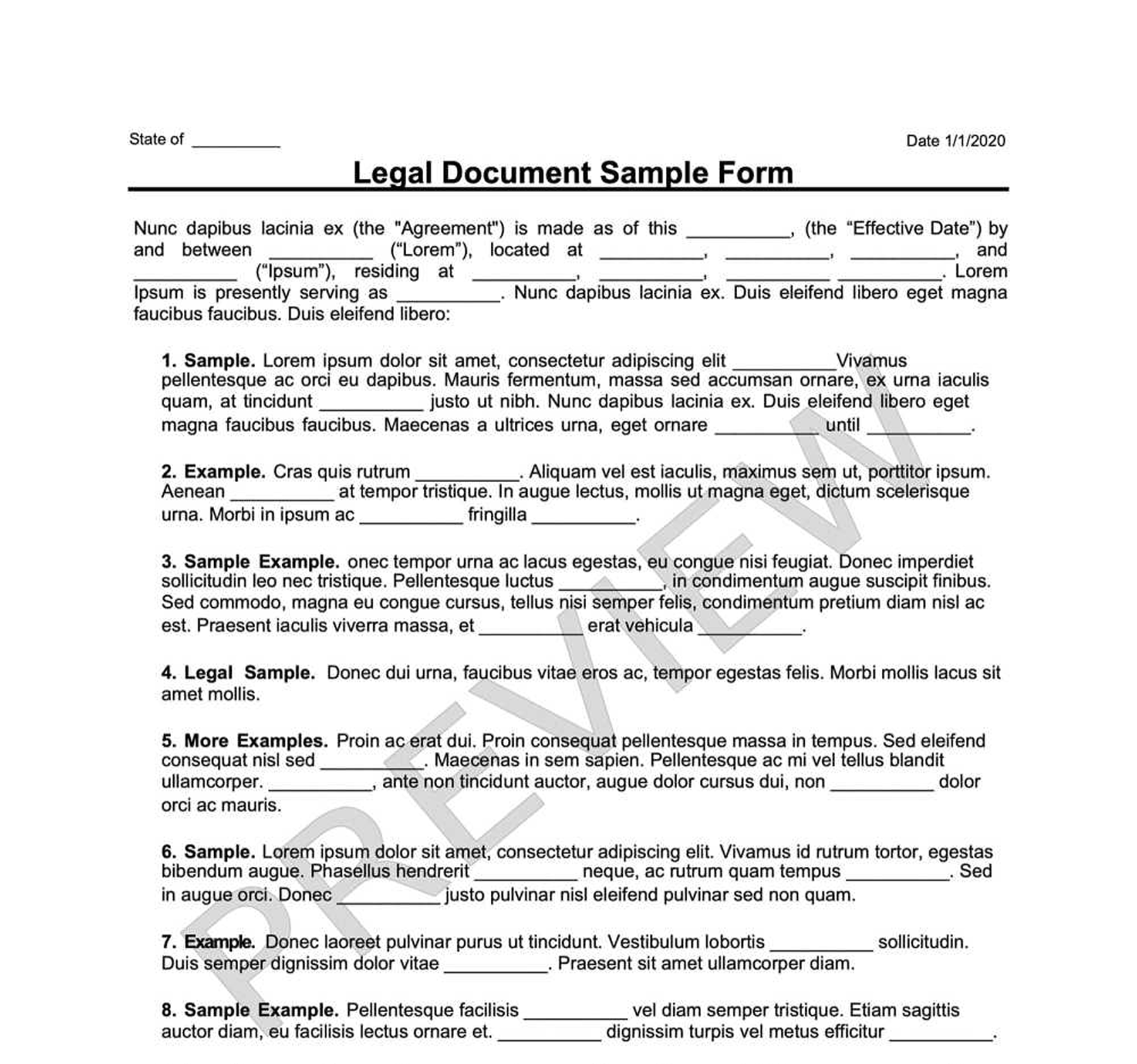Equipment Lease Agreement
An Equipment Rental Agreement is used when one party leases equipment from another for a specified period.

How it Works
Build your selected document.
Answer a few simple questions with step-by-step instructions.
Print & download forms instantly. Sign & make it legal.
What Is a Equipment Lease Agreement?
Companies lease equipment all the time. Even if they have the capital to buy equipment, leasing may benefit from better cash flow, higher tax deductions, and improved credit score (at the end of the lease).
However, it may make the most sense to rent the equipment for all temporary needs through the use of an Equipment Rental Agreement.
What Is an Equipment Rental Agreement?
An Equipment Rental Agreement is a contract between a lessor and a lessee containing all of the rental terms. For example, a company may rent construction tools or vehicles for the duration of a project.
More than that, the Equipment Rental Agreement is also used for smaller items such as event planning equipment, appliances, furniture, and video equipment on a per-project basis. It is also not uncommon for individuals to enter into this type of agreement with a company or another individual.
Other Names for Equipment Rental Agreement
Depending on your state, an Equipment Rental Agreement may also be known as:
- Rental of Goods Agreement
- Equipment Rental Contract
- Equipment Lease Agreement
- Equipment Loan Agreement
Who Needs an Equipment Rental Agreement?
An Equipment Rental Agreement can protect both the lessor and the lessee. The lessor may be entitled to regular payments and insurance coverage, and the lessee can negotiate payment frequency and rental period.
Why Use Swyft Forms for Your Equipment Rental Agreement?
Customized for you, by you
Create your own documents by answering our easy-to-understand questionnaires to get exactly what you need out of your Equipment Rental Agreement.
Specific to Your Jurisdiction
Laws vary by location. Each document on Swyft Forms is customized for your state.
How to Create an Equipment Rental Agreement With Swyft Forms
An Equipment Rental Agreement requires all the necessary clauses and terms to satisfy both parties of the contract. Businesses leasing equipment can significantly take advantage of a proven template.
Let Swyft Forms help with our extensive library of attorney-vetted legal forms. The process is fast and easy. All you have to do is fill out our easy-to-understand questionnaire. Once complete, download your form as a PDF or Word document from your secure online account.
What Information Will I Need to Create My Equipment Rental Agreement?
To create your document, please provide:
- Lessor Details: The legal name and contact information of the lessor.
- Lessee Details: The legal name and contact information of the lessee.
- Agreement Terms: Specify whether the agreement is fixed or ongoing.
- Payments: Specify the amount, frequency, and method of payments.
- Penalties: Specify the liability or penalties of nonpayment.
- Security Deposit: If applicable, specify the amount to be collected for the security deposit.
- Insurance: List the insurance requirements as appropriate.
- Signatures: Both parties are to sign the agreement.
Equipment Rental Agreement Terms
- Lessor: In the context of an Equipment Rental Agreement, this is the person or entity renting out the equipment to the lessee.
- Lessee: In the context of an Equipment Rental Agreement, this is the person or entity renting the equipment from the lessor.
- Security Deposit: A sum of money collected upfront to signal an intent to rent, among other purposes.
- Assignment: The act of transferring rights, including contractual rights, to another party.
- Severability: The quality of a document, such as an agreement or a lawmakers' bill, being valid even when some parts or provisions are struck out (valid without the severed parts or requirements).
- Penalty: In the context of an Equipment Rental Agreement, this is the penalty, most commonly monetary, for breaking the agreement's terms.
- Indemnity: Legal protection against loss or damage.
Equipment Rental Agreement Signing Requirements
It's imperative to review the agreement before signing carefully. Notarization is not required.
What to Do With Your Equipment Rental Agreement?
After you have generated your Equipment Rental Agreement on Swyft Forms, download your document and print out a copy. The Equipment Rental Agreement becomes valid upon signing.
Other Names for Equipment Lease Agreement
- Equipment Lease Agreement Form
- Equipment Lease Agreement Document
- Equipment Lease Agreement Agreement
- Equipment Lease Agreement Contract
- Equipment Lease Agreement Template
- Equipment Lease Agreement Checklist
Who Needs a Equipment Lease Agreement?
Why Use Swyft Forms for Your Equipment Lease Agreement
Customized for you, by you
Specific to Your Jurisdiction
Why choose Swyft Forms?
Create professional documents for thousands of purposes.
Make unlimited documents and revisions.
Our documents are vetted by lawyers and are applicable to all 50 states.
